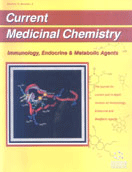Abstract
Obesity and its attendant disorders, such as Type 2 diabetes, have reached epidemic proportions globally. Despite significant advances in the understanding of appetite and satiety at molecular levels, practical therapies for weight loss remain a daunting problem. An approach that we have utilized is to identify pathways that alter cellular energy flux as a means to manipulate central and peripheral energy sensing. These studies indicate that several enzymes within metabolic pathways that regulate fatty acid metabolism may serve as targets for pharmacological interventions for obesity. We review studies that support the use of modulators of fatty acid synthase (FAS) and carnitine palmitoyltransferase-1 (CPT-1) to influence known energy sensors such as AMP-activated protein kinase (AMPK) to affect food intake and energy consumption. Substantial work in the past several years herein reviewed has centered on characterizing the effects of C75, a synthetic FAS inhibitor and CPT-1 stimulator, on feeding behavior and energy consumption. The collective effect of C75 is to cause profound anorexia and reversible weight loss beyond that accounted for by decreased food intake. In addition to physiological studies, mechanistic cellular and molecular studies have provided insight into mediators responsible for the anorexia. C75 increases ATP levels in many cell types, including neurons, to signal a favorable energy balance, which in turn inhibits hypothalamic AMPK, and alters gene expression in neurons and in peripheral tissues, further supporting weight loss. Compounds have been developed that selectively inhibit FAS and that selectively stimulate CPT-1 to permit further explorations into the contributions of these two pathways to energy sensing. Recent studies indicate that modulation of FAS/CPT-1 activities can affect a number of cellular processes, depending on cell type and physiological context, and thus these compounds may have implications for treating other CNS disorder as well.
Keywords: fatty acid synthase (fas), obesity, ampk, food intake, cpt
 9
9








